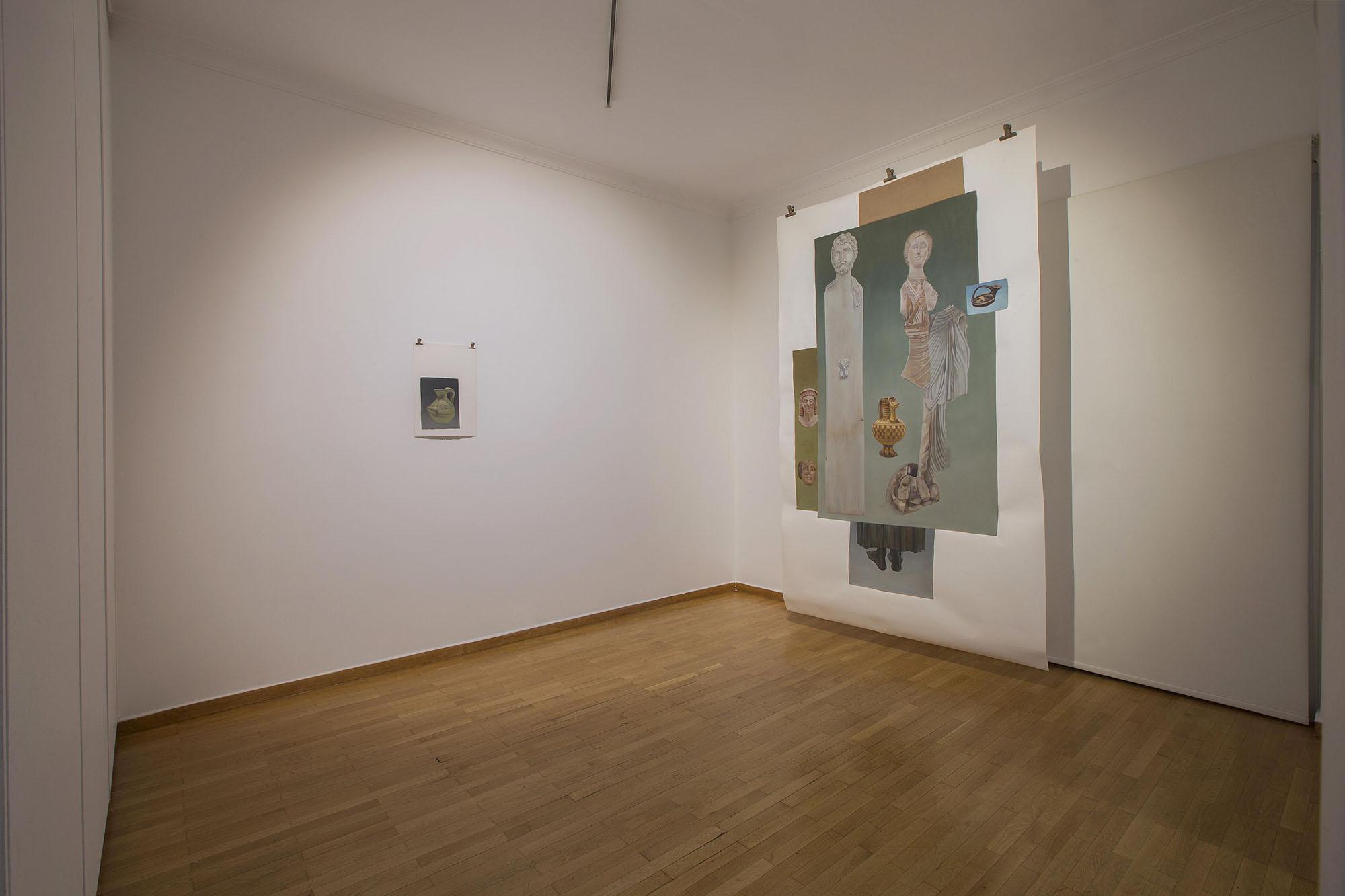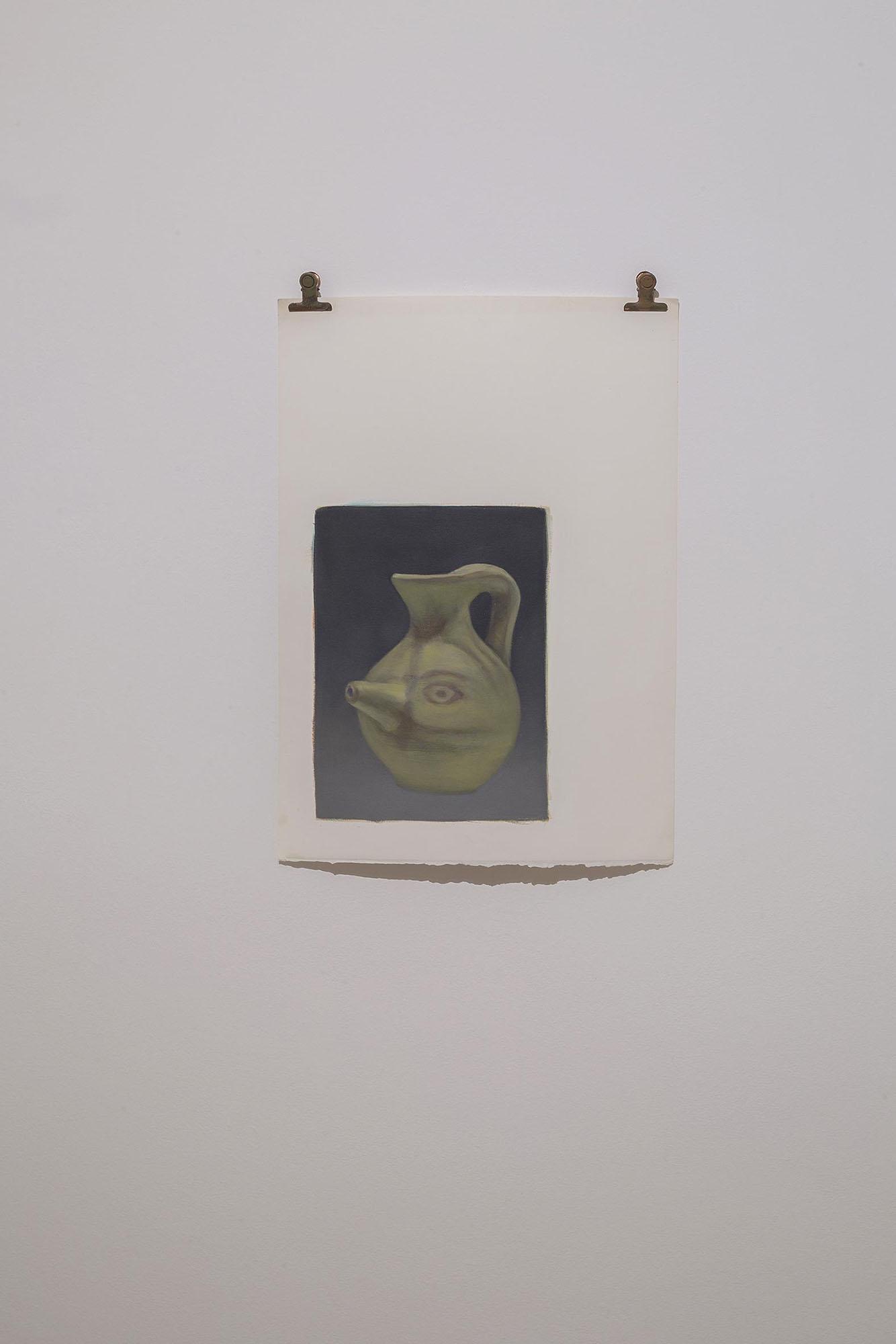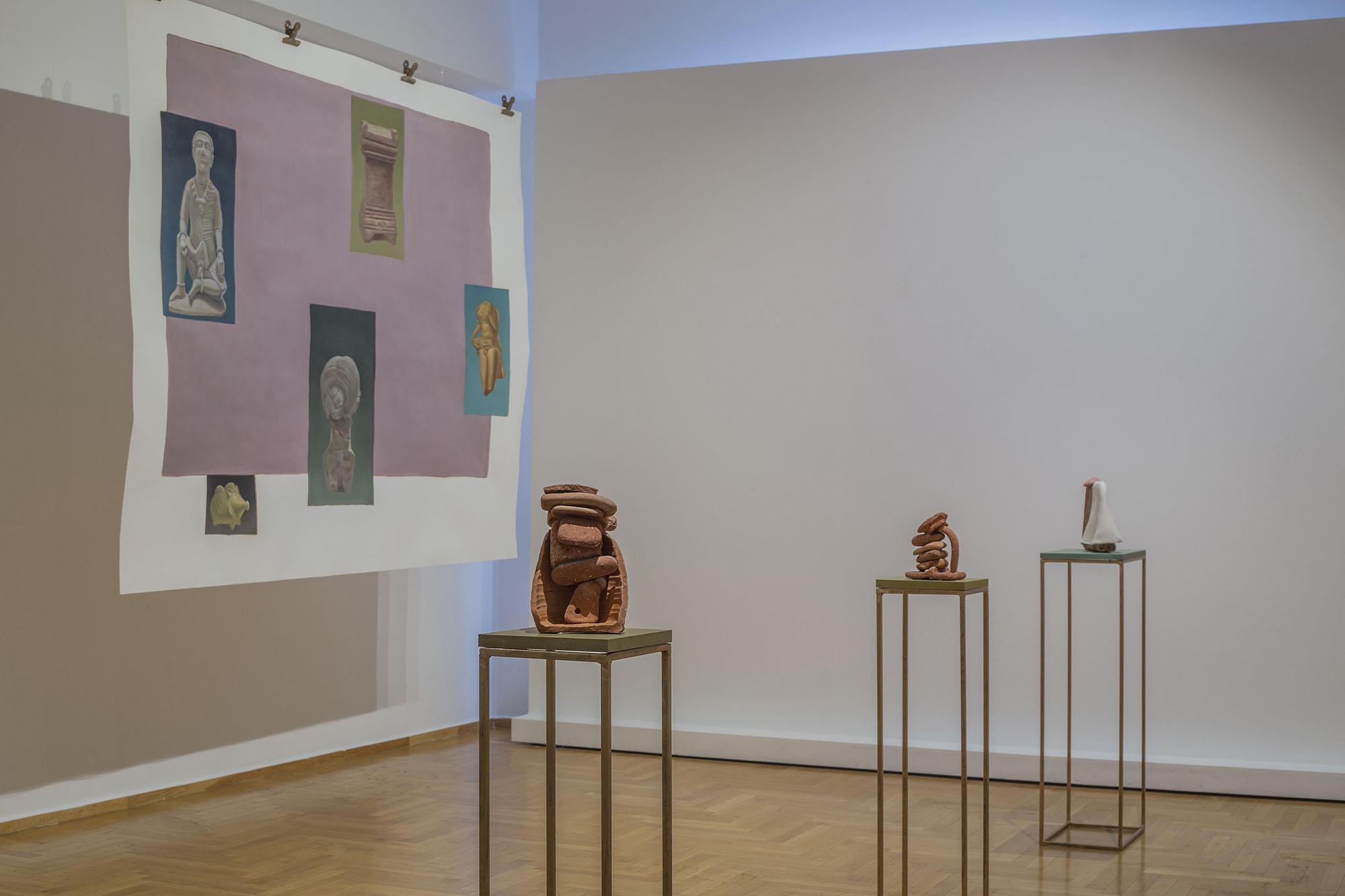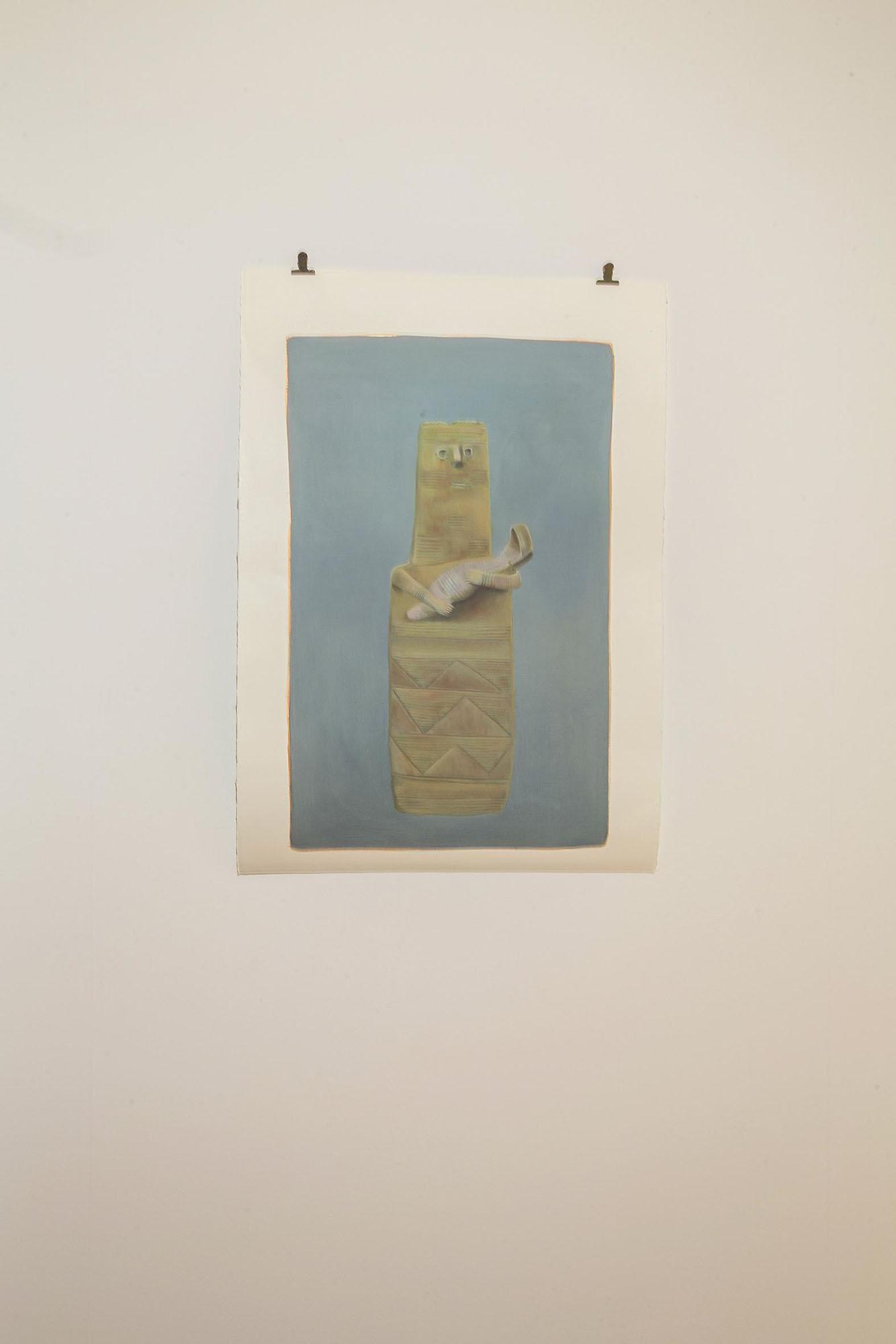Online viewing: March 13 - June 1 - September 15, 2020
Vasilis Zografos / Remains
A collection of objects from a distant past, carefully chosen from museums and private collections, is pictorially transferred onto a paper substrate, without connotations in the background.
With its ancient Greek, largely female terracotta figurines, along with statuettes of small animals and hermaphrodite creatures and even votive and funerary steles, set like post-it notes in a private viewing, this painterly reproduction provides a setting of quietude and silent conversation, creating an impalpable but powerful cohesiveness of propinquities.
In this ancestral life-world and its new poetic manifestation, deep beliefs about the life of objects are enchantingly cast in a newly conceived environment and time, thanks to the process of painting. We should thus not be surprised to see it foster the kind of reflection that almost automatically unleashes the power of the imagination.
At the root of these paintings lies the artist’s desire to express what he seeks and pursues out of his relationship with objects of the past: a relationship with living entities, possessed of voice and almost unspoiled by the ravages of time, which provide a wealth of opportunities for exchange and discourse. In my view, the artist’s fantasies are captured in these works as a gaze of compassion that bears the mark of time spent in conversation with each of these objects—and often with more than one, seeing that their propinquities create conditions to creatively guide the viewer’s gaze.
Whatever documented or archaeological references these works may have, it makes sense to view them not as a visualized historicity but as a symbolic game for the ego. Only then can we discern the various scenarios of “conspiracy” at play among the objects in these paintings. Only then will the aesthetic reversals of cultural memory, chance cohabitations and enigmatic images that emerge be able to offer a new and different narrative of investigation and excavation that speaks to the viewer’s own concerns, whoever he or she may be.
Thalea Stefanidou
Thessaloniki, February 2020



